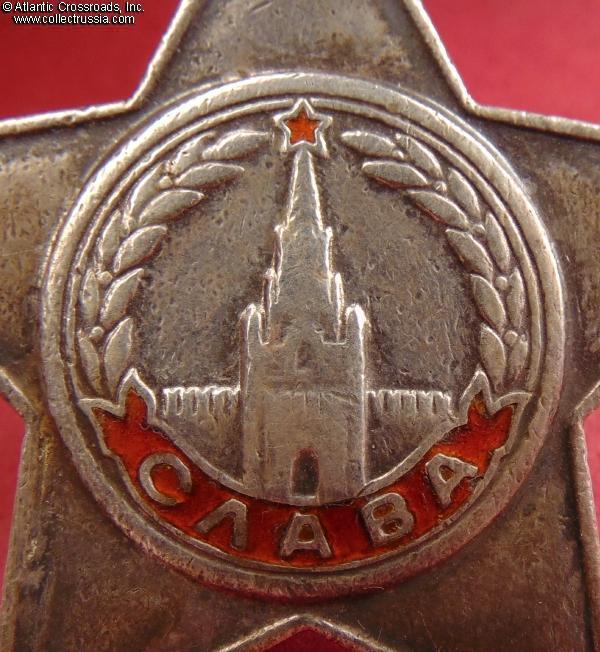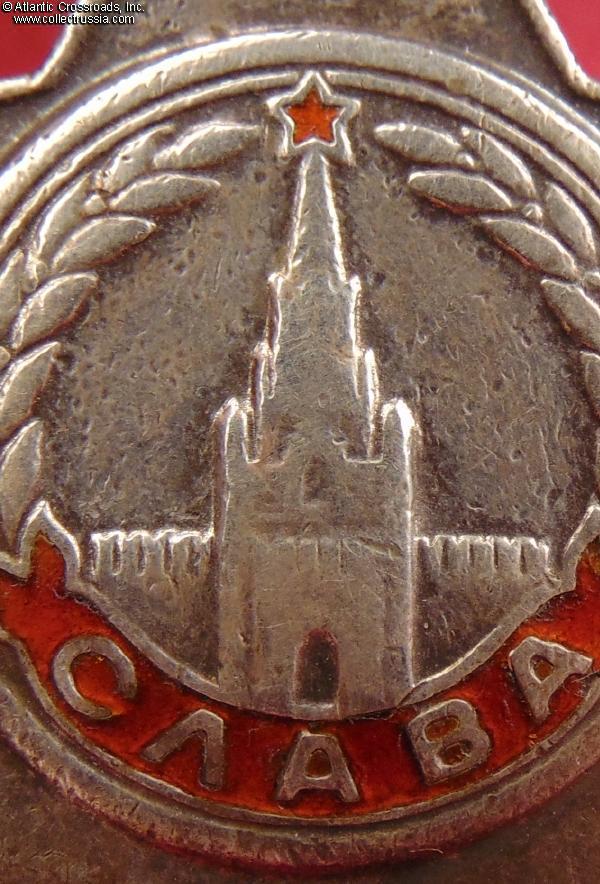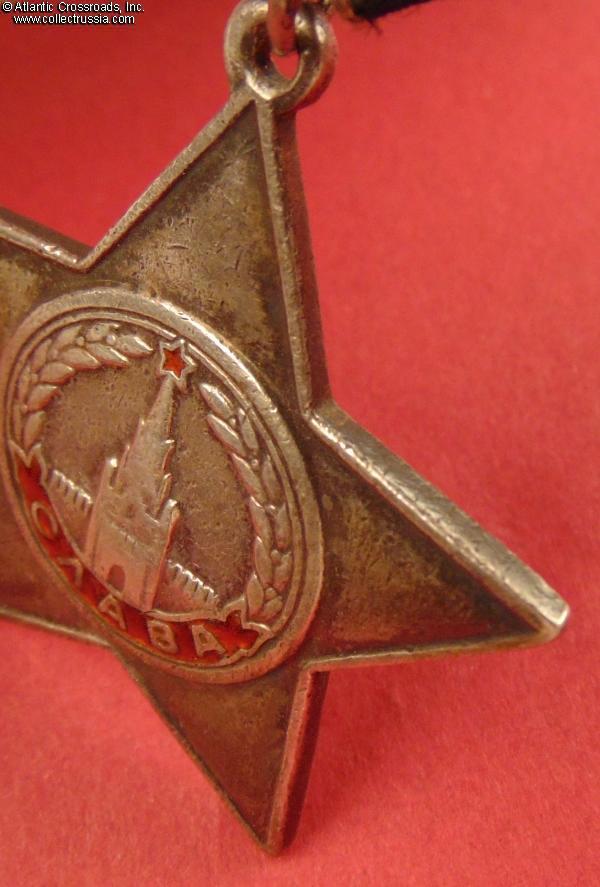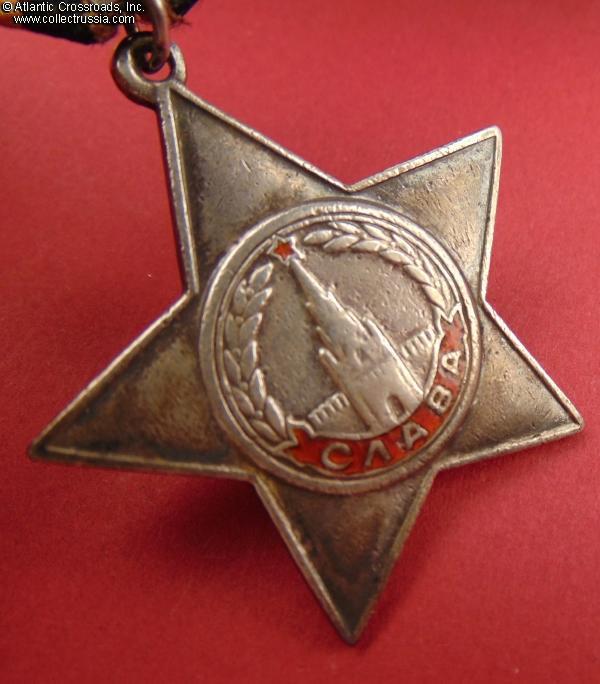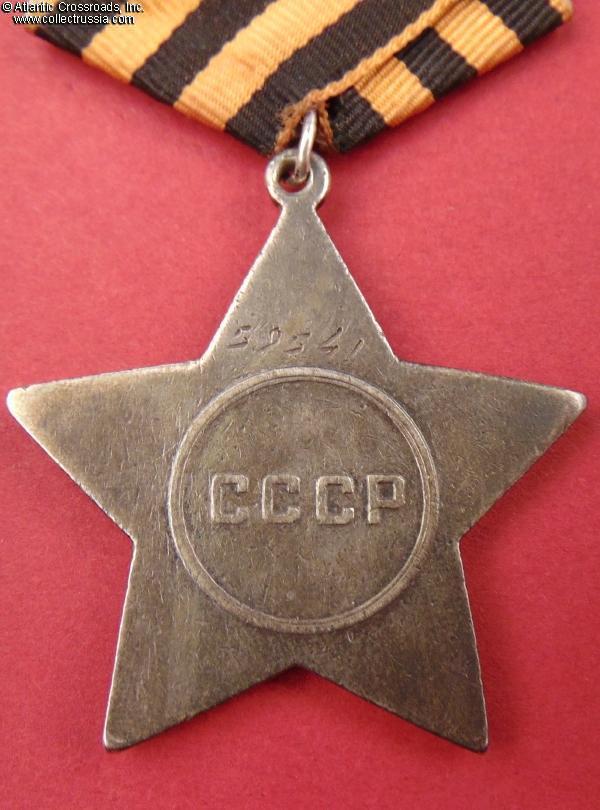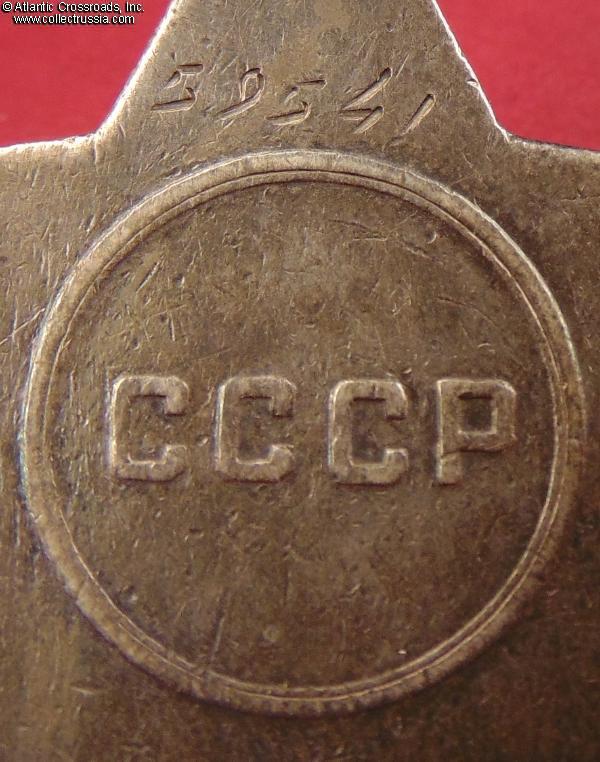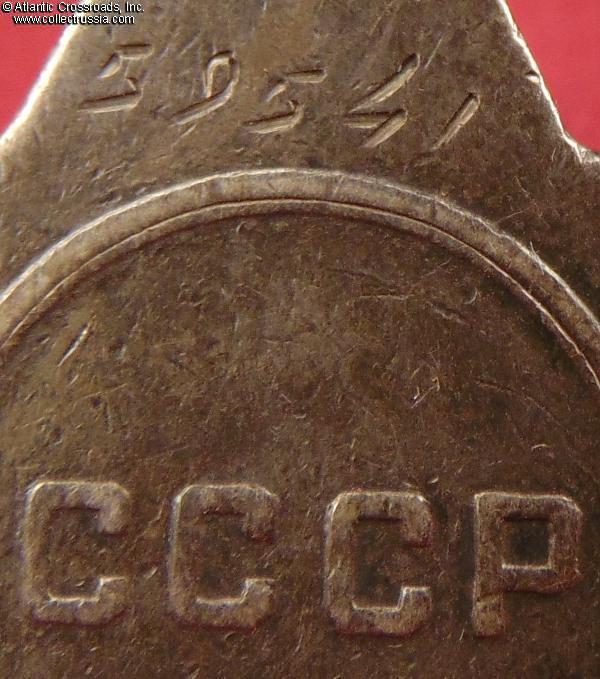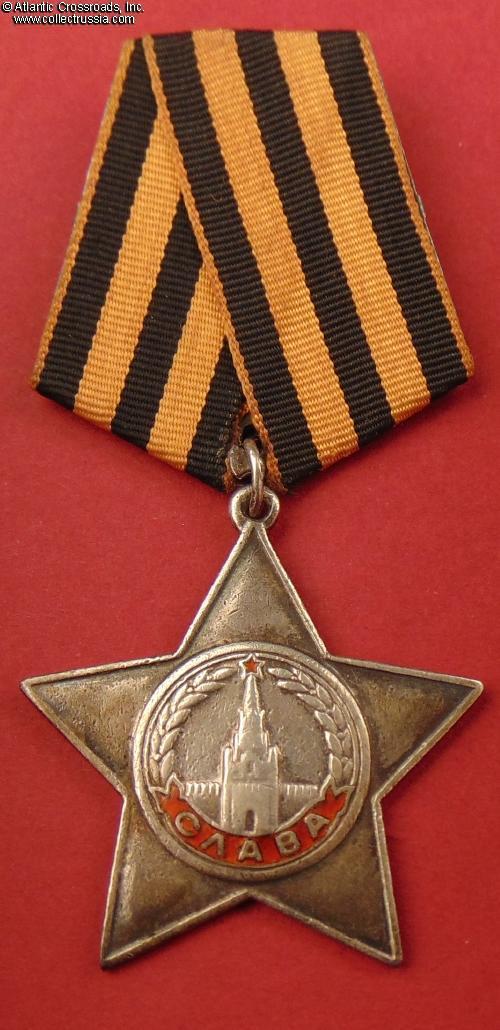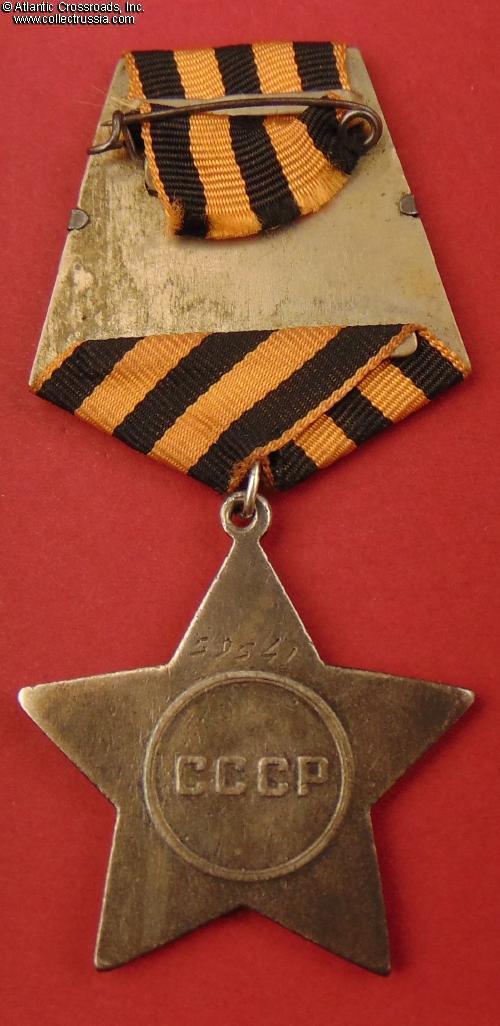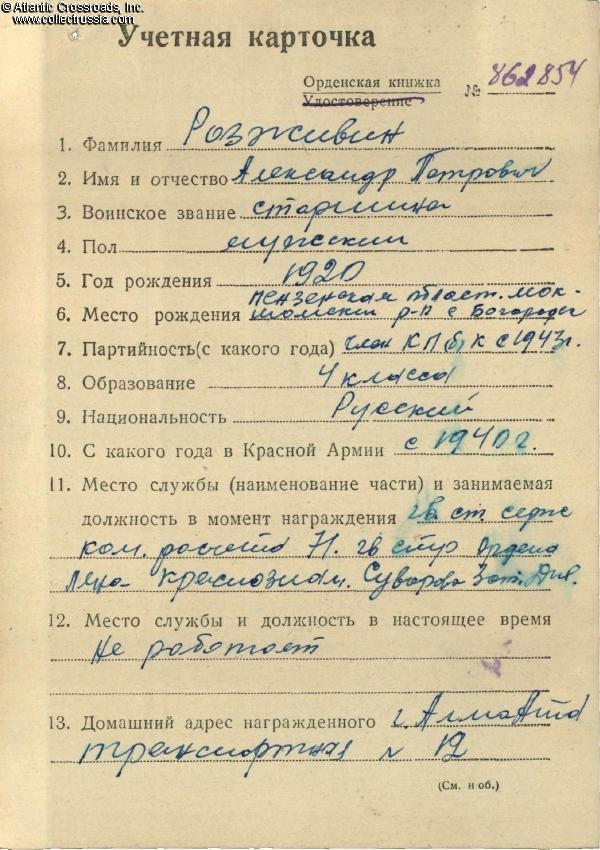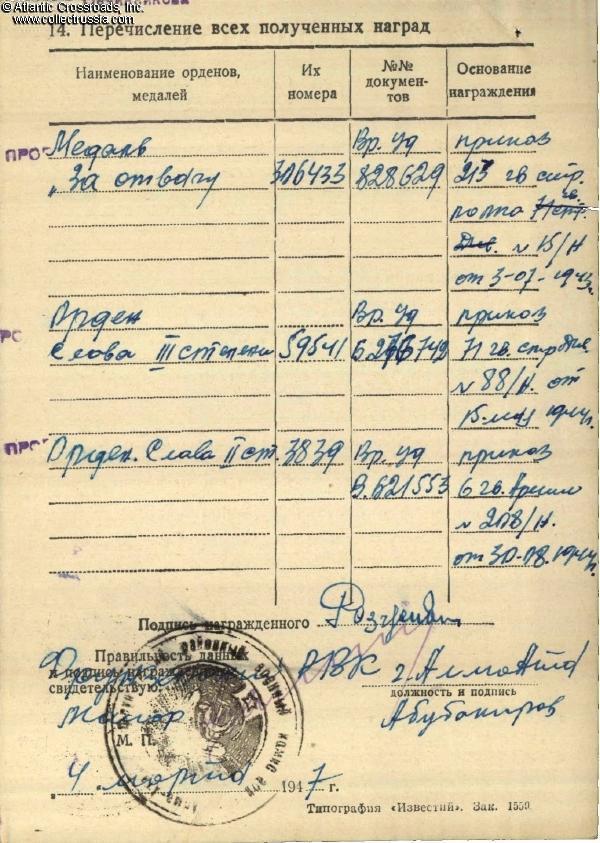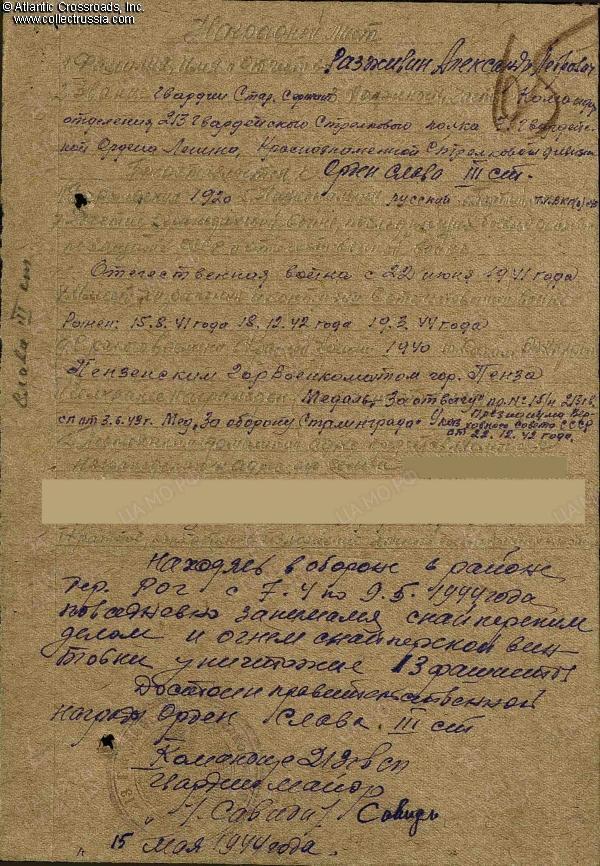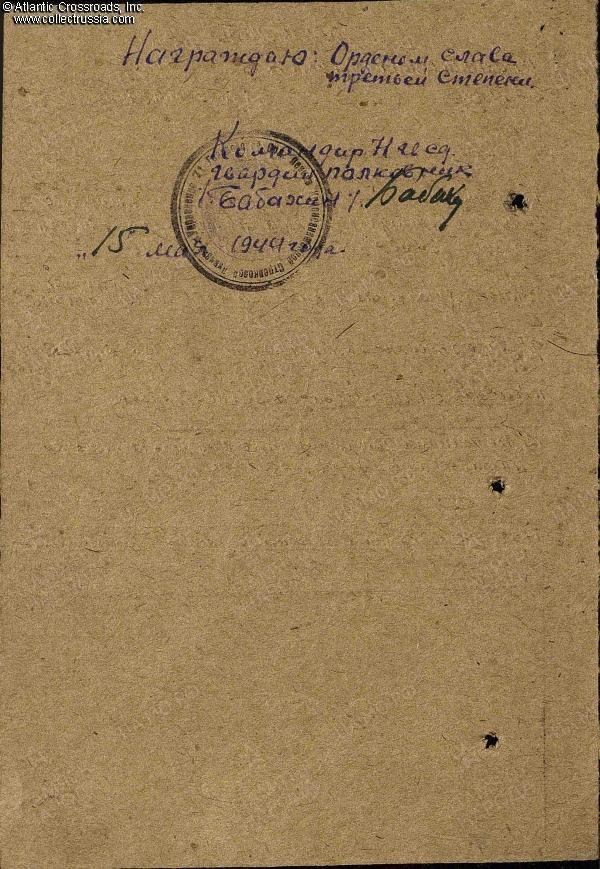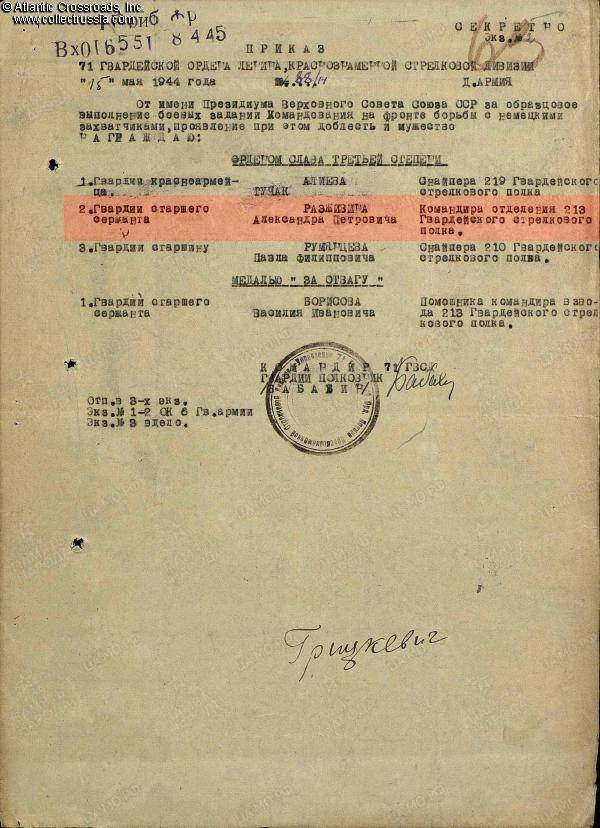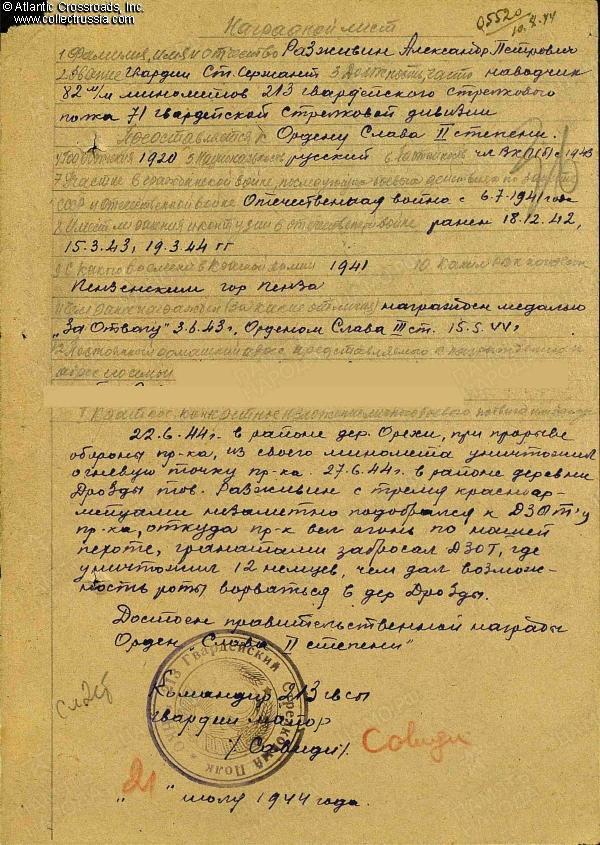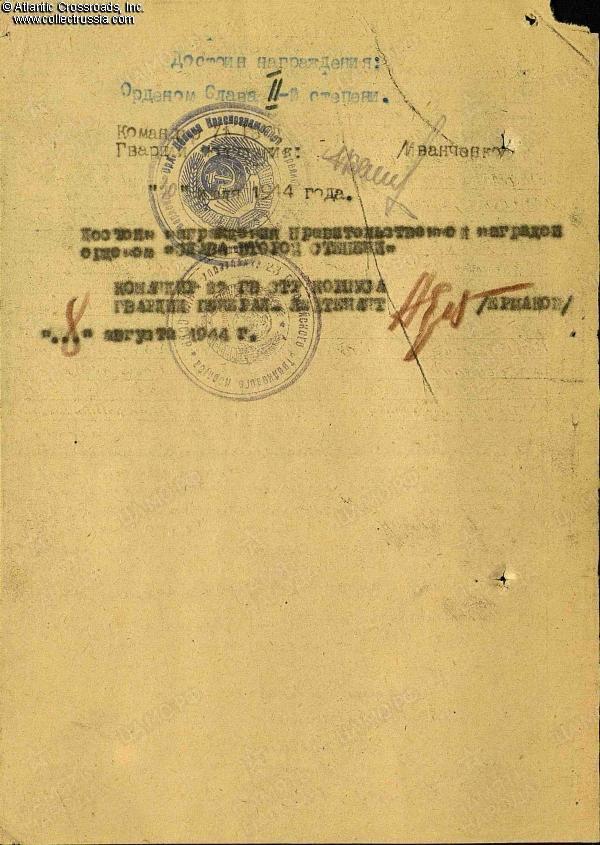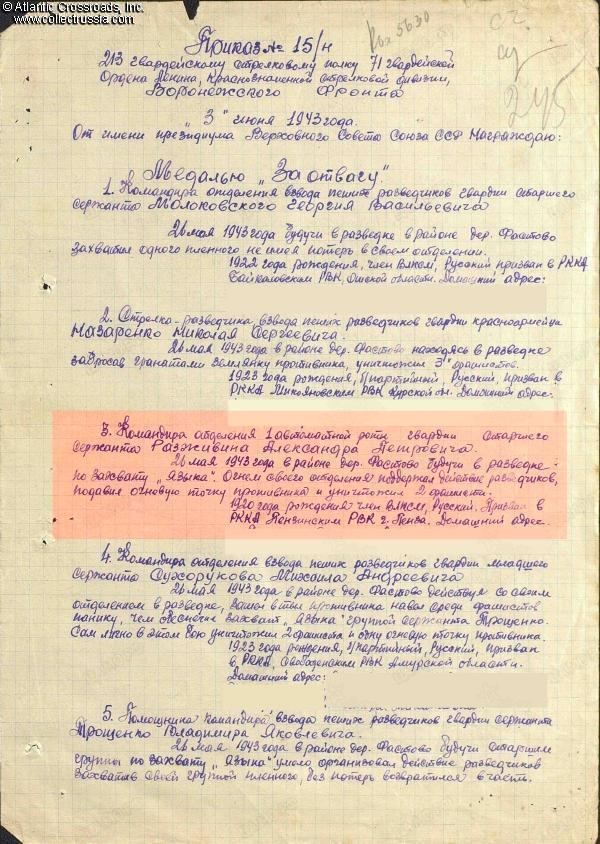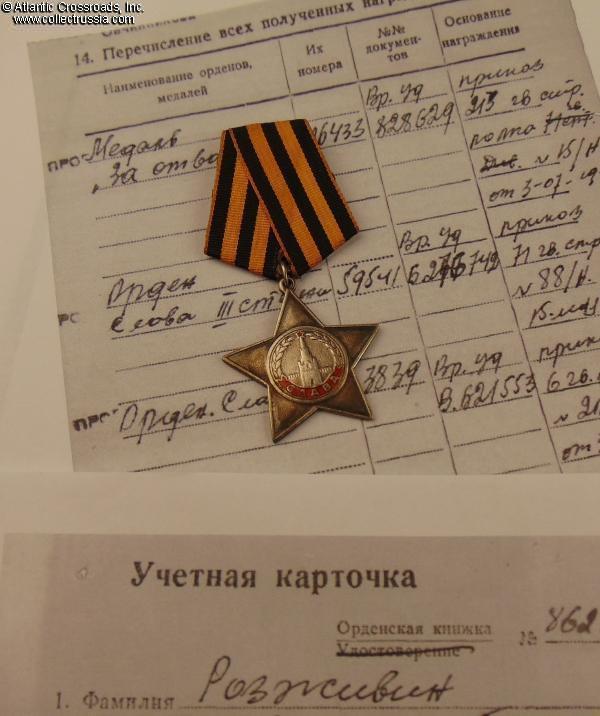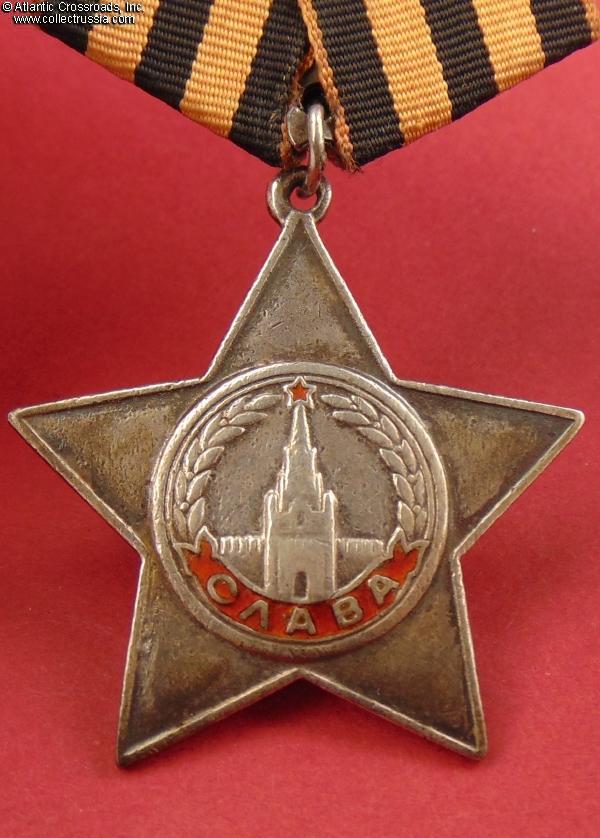
Order of Glory 3rd cl, #59541, awarded on 15 May 1944 to Senior Sergeant Aleksandr Razzhivin (Александр Петрович Разживин), a sniper of the 213th Guards Rifle Regiment, 71st Guards Rifle Division, 23rd Guards Rifle Corps, 6th Guards Army, 1st Baltic Front.
Silver, enamel; measures 48.1 mm in height incl. eyelet, 46.0 mm in width; weighs 24.3 g without suspension and connecting link. Note the low, 5-digit serial number. Features an early version of the medallion with the Kremlin tower touching the edge of the red scroll, arch under the clock without the horizontal bar in its upper portion, and the "windows" on the left and right of the arch having small vertical lines not reaching the bottom of the windows (the latter are admittedly hard to see on this specimen due to wear).
Fine to very fine condition. The enamel retains a nic
Silver, enamel; measures 48.1 mm in height incl. eyelet, 46.0 mm in width; weighs 24.3 g without suspension and connecting link. Note the low, 5-digit serial number. Features an early version of the medallion with the Kremlin tower touching the edge of the red scroll, arch under the clock without the horizontal bar in its upper portion, and the "windows" on the left and right of the arch having small vertical lines not reaching the bottom of the windows (the latter are admittedly hard to see on this specimen due to wear).
Fine to very fine condition. The enamel retains a nice luster and appears nearly intact to the naked eye, although a careful examination with a 10x loupe reveals extensive surface flaking, especially around the letters on the red plaque. The tower and wreath show moderate amounts of wear to the high points, but most of the fine details of the medallion are still visible.
Comes on an original WW2 suspension device, a two-layer model in steel with self-locking pin. The perfectly clean ribbon is relatively recent, lightly used. The connecting link appears to be original and its ends are still joined with solder.
Aleksandr Razzhivin was born in 1920 in a village of Penza Region, about 500 miles southeast of Moscow. He was conscripted into the Red Army in 1940, and was on the front lines of the Patriotic War since its first day, 22 June 1941. In May 1943, Razzhivin's 213th Guards Rifle Regiment of the 71st Guards Rifle Division, 6th Guards Army, then a part of the Voronezh Front, was engaged in the final preparations for the upcoming Battle of Kursk on the southern flank of the salient. A few weeks later, the regiment would stand directly in the path of the attacking German 4th Panzer Army but presently, the front was unusually quiet. Razvhivin was then a squad leader in the 1st submachine gun company. On 26 May, he and his squad were on a recon mission supporting a team tasked with capturing an enemy soldier to interrogate. Razzhivin's squad neutralized an enemy firing position with submachine gun fire, thus providing the recon team an opportunity to complete their task and bring back a captive. For this operation, Razzhivin was recommended for the Medal for Valor, with which he was awarded on 3 July 1943.
From early April to early May 1944, Razzhivin's regiment was engaged in defensive fighting near the village of Rog, about 30 miles west of the city of Mogilev, Belorussia. While remaining the squad leader of the 213th Rifle Regiment, Rаzzhivin had apparently received additional training as a sniper and put his newly acquired skills to good use on a daily basis. From 7 April to 9 May 1944, he made 13 kills with his sniper rifle and was recommended for the Order of Glory 3rd cl., which was bestowed upon him on 15 May 1944.
The Order of Glory 3rd cl. was not his last wartime decoration, nor the last Order of Glory. In the opening phase of the Bagration strategic offensive in Belorussia, the 71st Rifle Division of the 1st Baltic Front, together with the 43rd Army and the 39th Army of the 3rd Belorussian Front, liberated the city of Vitebsk on 26 June 1944 and struck towards Polotsk. During the operation, Razzhivin served as a gun-layer for 88-mm mortars, and distinguished himself in that capacity. On 22 June, the first day of the offensive, Razzhivin neutralized with mortar fire a machine gun nest near the village of Orekhi, thus creating an opening in the enemy defense lines to allow his unit to advance. On 27 June, he and three servicemen of his squad stealthily approached a German pillbox near the village of Drozdy, north of the city of Polotsk, and destroyed it with hand grenades, killing 12 enemy soldiers. His company was then able to enter and liberate the village. For these feats, Razzhivin was recommended for the Order of Glory 2nd cl. which was awarded to him on 30 August 1944 (#3839).
By the end of the Patriotic War, Razzhivin had the rank of Guards Sergeant Major. If he remained on active duty after the war, it was not for long. As of March 1947, when his award record card was filled in, he had moved to Alma-Ata, the capital of Soviet Central Asian republic of Kazakhstan, and was unemployed.
Research Materials: b/w photocopy of the award record card, commendations for all three WW2 decorations, and the award decree for the
Order of Glory 3rd cl.
$975.00 Add to cart

